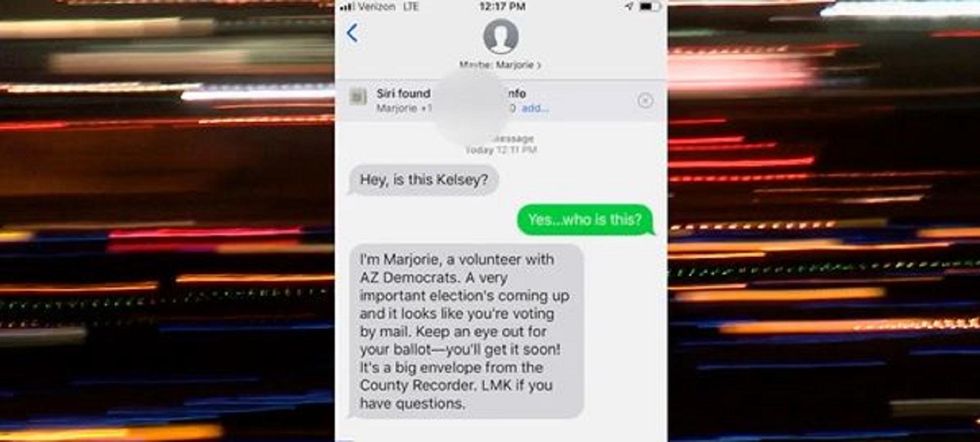
Political texts are increasingly used by campaigns to solicit voters, but consumers and groups are pushing back against the practice. (Image source: YouTube screenshot)

Political campaigns are increasingly using direct text messages as a strategy for reaching voters. But many consumers are frustrated over being hassled on their cellphones, leading to lawsuits against candidates and pleas for the Federal Communications Commission to update its rules regulating the practice.
While robocalls and robotexts to mobile devices are prohibited under the FCC's Telephone Consumer Protection Act, campaigns and their contractors are getting around the restrictions by sending peer-to-peer text messages directly to individuals.
In some instances, parties are using new technology to send these "P2P" messages in rapid-fire fashion, so the texts they're sending aren't technically automated.
Arizona elections attorney Kory Langhofer told KNXV-TV, "There are these new apps that allow the parties to send a bunch of texts very quickly in a way that may be legal. I think it's fair to say that the apps were created to get around the laws prohibiting automatic text messages to cellphones."
Other experts say the practice is perfectly legal under current FCC rules, but many consumers are pushing back.
The Sun-Sentinel in Florida reported Friday that "TCPA cases are the second most active type of litigation in the federal courts," according to Washington, D.C., attorney David Carter, who told the Sentinel, "The area's ripe for class action."
KNXV reported that the new election apps have not yet been regulated or tested in court, but any campaign or company found in violation of the rules could be fined anywhere from $500 to $1,500 per text.
The campaign for U.S. Senate candidate Beto O'Rourke (D-Texas) is currently facing a class-action lawsuit over unwanted political texts, but Beto for Texas communications director Chris Evans defended the practice.
"Our grassroots volunteer program with thousands of Texans canvassing, phone banking, texting and organizing is the largest this state has seen. It is fully compliant with the law," Evans said to the Star-Telegram.
A number of organizations have petitioned the FCC to provide clarity on the use of P2P texting for campaigns, including advocacy group P2P Alliance, the Republican National Committee and Voter.org. The FCC has not yet set a date to rule on the matter, according to the Sun-Sentinel.
Campaigns are often able to obtain consumers' phone numbers through voter registration records, past political support, or lists purchased from private companies. Political groups are not restricted by the "Do Not Call" list because their speech is considered protected — unlike companies contacting individuals to market a product or service.
Anyone who receives an unwanted political text message is encouraged to simply reply, "STOP," or to contact the campaign who sent the solicitation and request to be removed from their list.